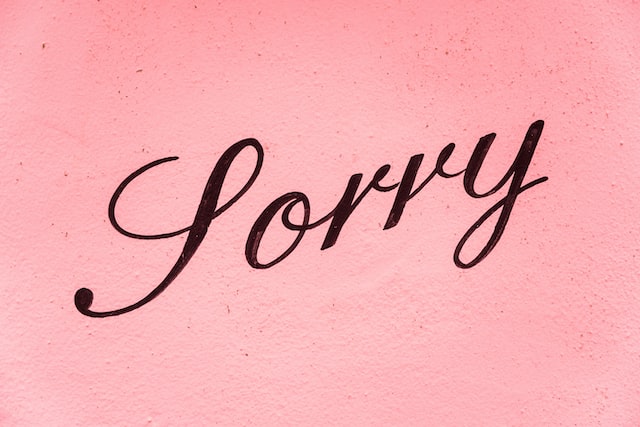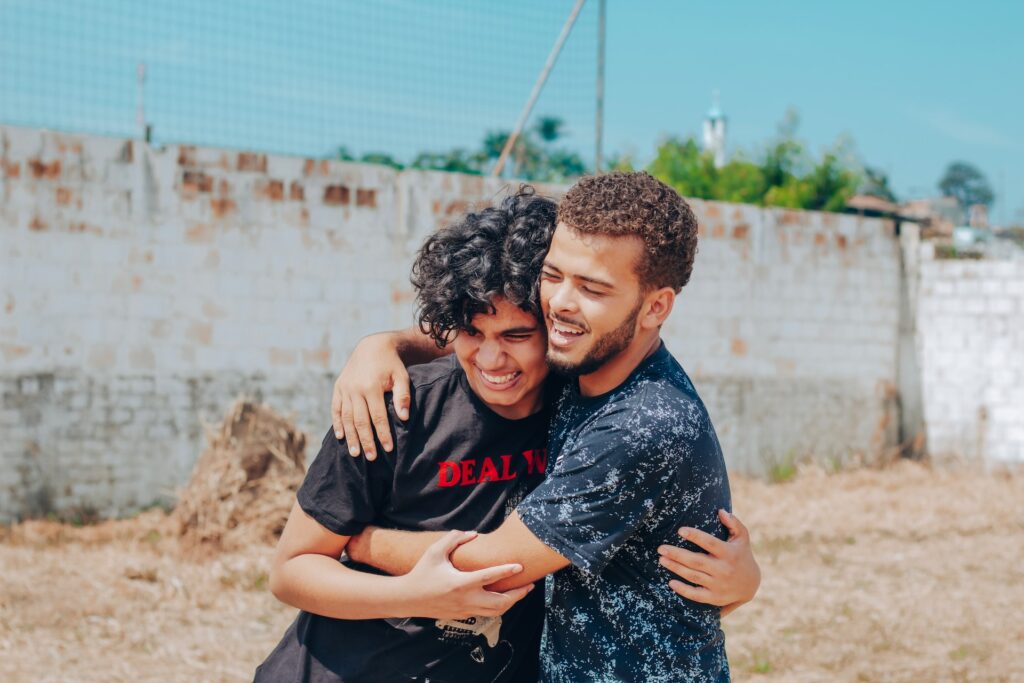No matter how awesome or smooth sailing your relationships and friendships may be, any healthy relationship will have its moments where an apology may be necessary.
So, how do you go about it?
One way is by understanding your, your partner’s or your friend’s apology language.
In a similar fashion to the 5 love languages, Gary Chapman and Jennifer Thomas have researched and written a framework for the five different ways of offering and receiving apologies.

What are the apology languages?
So what is each apology language about and how can you differentiate between them? Here’s a brief breakdown of what each apology language entails.
Expressing regret:
This first apology language is simple yet powerful. It gets straight to the point by directly cutting to the chase. For example, by admitting to any guilt or shame you may be feeling.
Expressing regret may sound like:
- “I’m sorry.”
- “I feel ashamed and sorry for ____.”
Accept responsibility:
In this apology language, you accept and own your mistakes. Some people may find that the apology doesn’t feel genuine when the other doesn’t own up and accept responsibility for their actions.
This apology language may sound like:
- “This was entirely my fault. I’m sorry.”
- “I was wrong and have no excuse for ____.”
Planned change:
As the title already implies an apology of this sort includes some sort of action that won’t happen again. The intent is to avoid any similar situation in future. For the person receiving the apology, the important part is that the person apologising expresses remorse but, more importantly, wants to make a change.
A planned change apology may sound like:
- “I feel awful about what happened. What can I do to avoid this in future?”
- “I’m so sorry about ____. Next time, I will ____.”
Make restitution:
For some, an apology is only complete when the one apologising also shows that they are making an effort to, for example, make amends and try and make things right again.
This may sound like:
- “What can I do to make this up to you?”
- “I’m sorry, I will do ____ to improve/make it better/regain your trust.”
Request forgiveness:
This final apology language offers the person who has been hurt the opportunity to process the situation in their own time. Requesting forgiveness is quite a vulnerable act, as the person who is apologising is placing the power in the hands of the other.
Requesting forgiveness may sound like:
- “Will you forgive me for ____?”
- “I’m sorry for hurting you. Can you find it in your heart to forgive me?”
You may find that more than one of these different ways of apologising resonates with you which is completely normal. In most cases, you will find that you have different responses or ways of apologising in different situations. You may, for example, value the request for forgiveness more when something is broken, but need another to accept their responsibility when you’re feelings have been hurt.
If you want to find out what your main apology language is and what the other ones are, you can take the official test here.
Why are apology languages important?
As briefly mentioned above, different situations call for different types of apologies. Additionally, you may find that by knowing and understanding your, as well as your partner’s or friend’s apology languages, you are able to build stronger bonds as you develop a better understanding of each other.
The way you convey your apology is also important. To learn more about how you can apologise sincerely, read these 5 top tips.
If you’re interested in learning more about how to build healthy relationships in your life, whether with your friends, family or intimate partners, sign up to the Lovedoc waitlist where you will receive the newest updates for the app’s launch.


